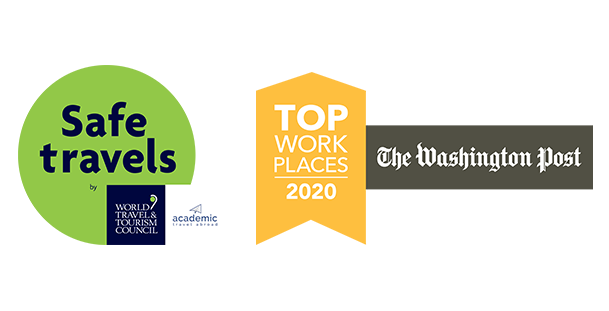Each year, all ATA employees set goals to transform our workplace, programs, and the fields of travel and international education to be more just, equitable, diverse, and inclusive. We came together to share our progress at an annual review.
Blog
2023 Q4 Newsletter
After over two years of disruption in the travel industry, the past 12 months have felt as close as possible to a “normal” year. But what did that really look like? We launched new partnerships, prioritized diversity and sustainability efforts, and curated many educational travel experiences at home and abroad.
2023 Year in Review
The past 12 months have felt as close to a “normal” year as possible, and that is cause for celebration! Read on to see our highlights from 2023!
Daughters of the American Revolution: Roman Holiday
The National Society Daughters of the American Revolution (DAR) has always been dedicated to preserving American history. In its quest to honor those who provided essential support to the American Revolutionary War, 130 members embarked on an unforgettable journey to Rome, Italy last fall.
A Year of Reduced Hours Work
In January 2023, ATA piloted a new reduced hours work schedule. Our philosophy is that a life well-balanced between work and play is a more productive and happier one. Technology, which is evolving at breakneck speed, should allow fewer hours worked, not more.
The Post and Courier: Interview with Editor-in-Chief Autumn Phillips
ATA Partners with Charleston’s Post and Courier Editor-in-Chief on a new travel initiative. Last summer, Autumn Phillips, Editor-in-Chief of the Post and Courier, called and asked us to help her launch a travel program for Post and Courier subscribers and their friends and family. Autumn is an accomplished writer and traveler







